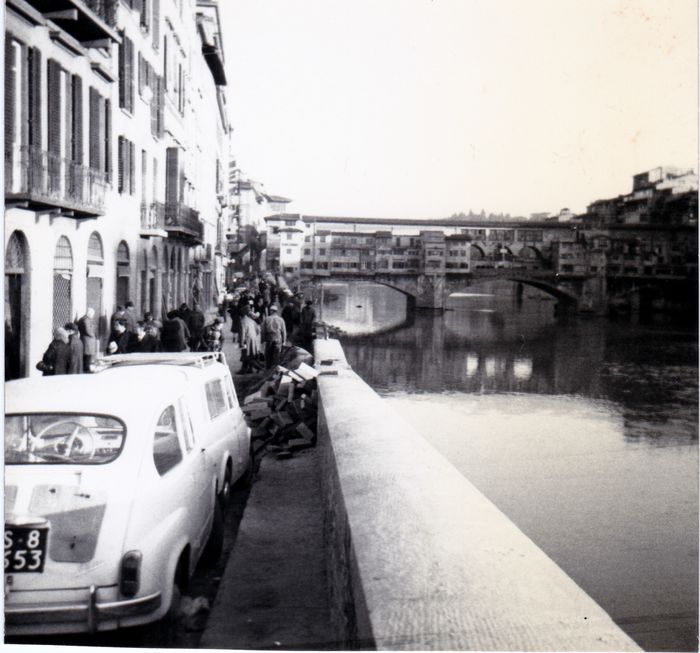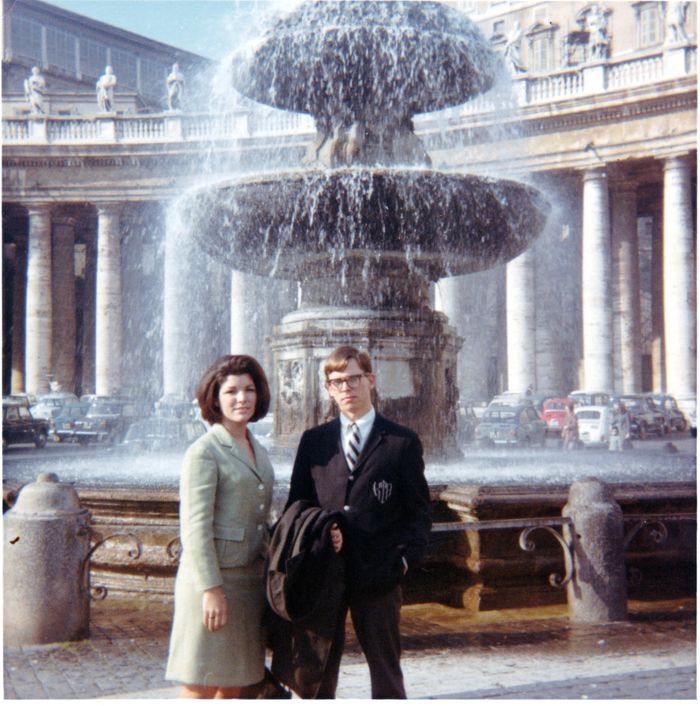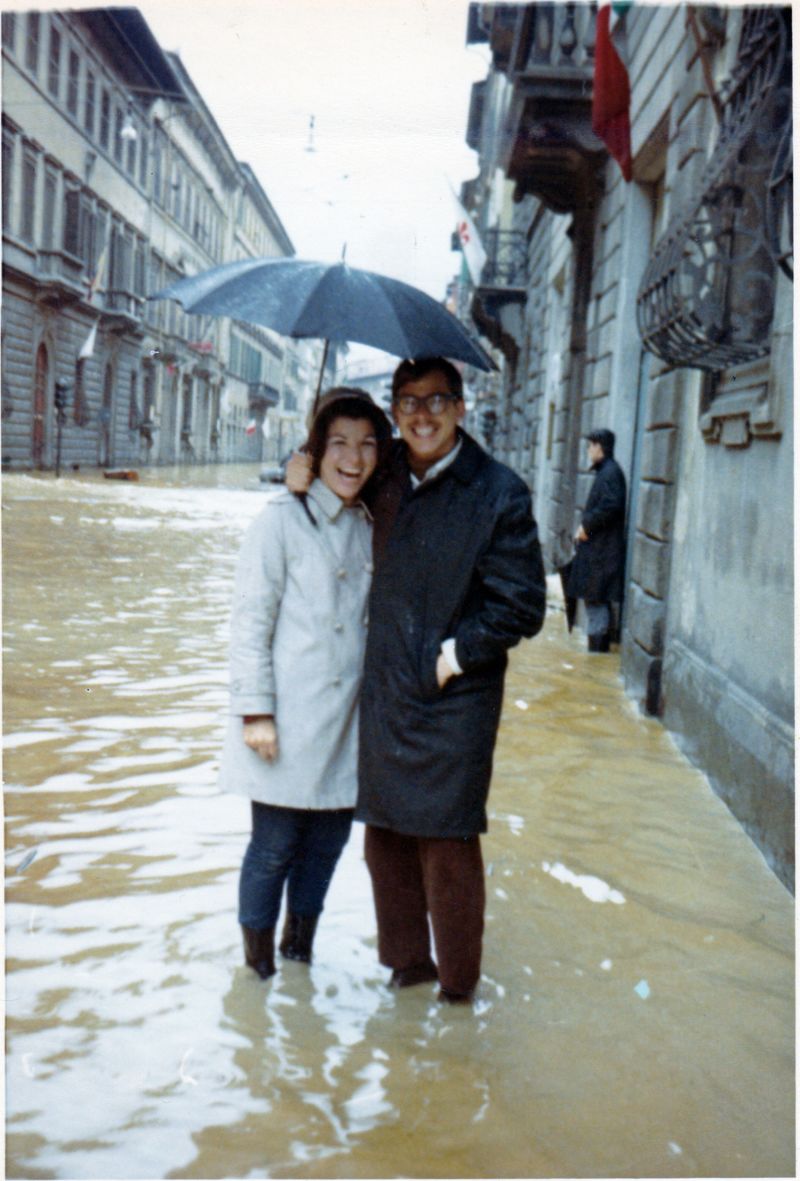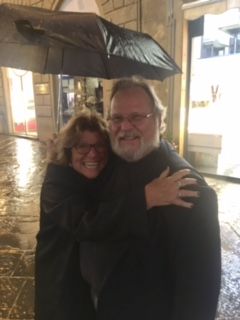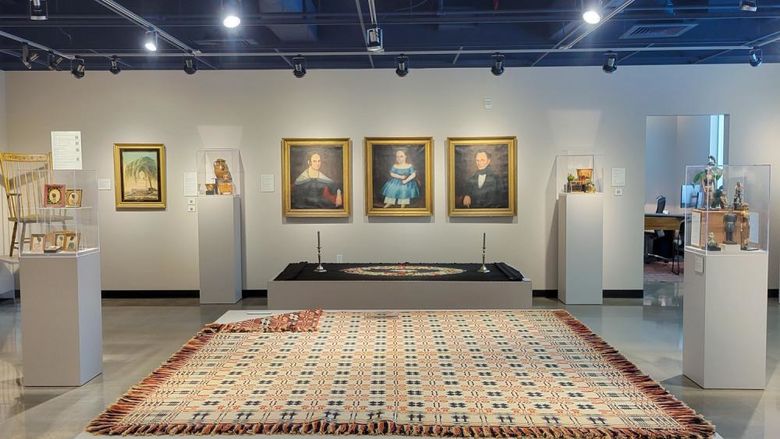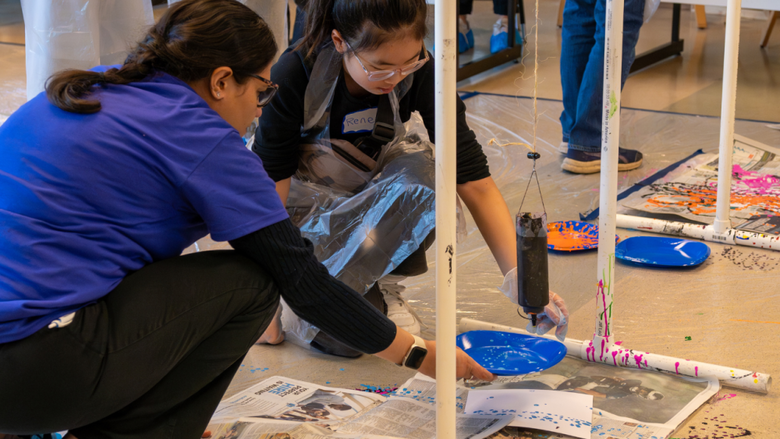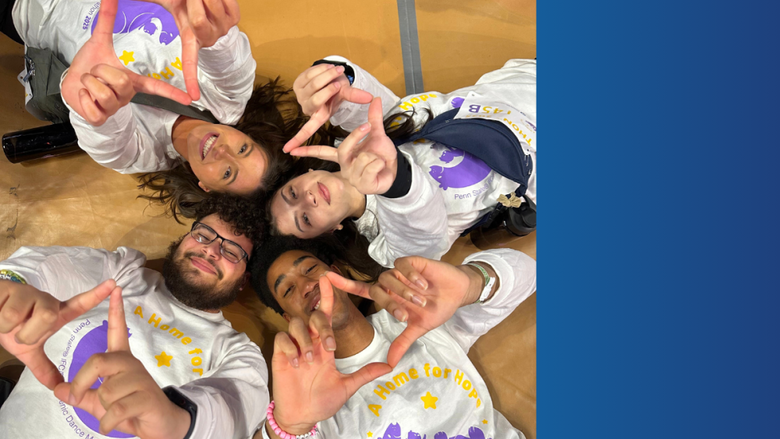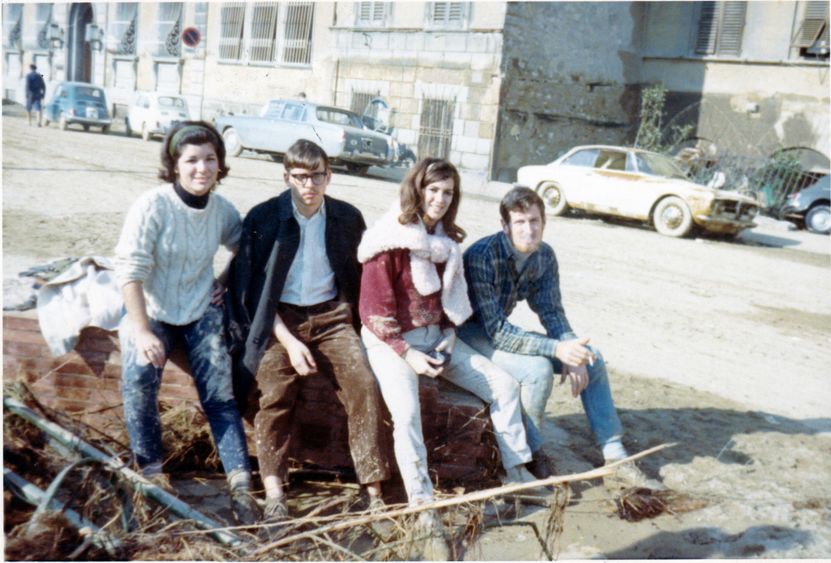
Mud-splattered students Kenneth A. Thigpen, second from left, posed with then-girlfriend and future wife Ann Marie Cianci, far left, and their classmates Esta Coverman and Ernie Brock near Piazza Santa Croce in front of the Biblioteca Nazionale in Florence in 1966.
Kenneth A. Thigpen has served as director of academic affairs at Penn State Lehigh Valley since 2008. Many people on campus know about his numerous and fascinating journeys, but the trip that first developed his interest and passion for travel, the arts and academics was 50 years ago.
Thigpen, then 18, was about to start his sophomore year at Florida State University. During his freshman year, he had heard of a plan to establish a new study abroad program in Florence, Italy. He spent the summer taking intensive Italian to prepare and in August of 1966 he and his classmates flew to Florence, a Renaissance city built on the banks of the Arno River.
He spent the first two and a half months studying Renaissance art, history and English. Then in November, Thigpen and his classmates had heard that a dam broke on the Arno River. They rushed out of the hotel where they were staying to see what was going on.
“We were so naïve. We saw the waters rising and had no idea of the devastation that would follow. We didn’t realize the issue was that water was gushing toward Florence at 50 mph,” Thigpen said.
He recalled how when they first went outside to check things out and started taking photos they did not realize how fast the water would start rising. And then as quick as it came, the water went down. Thigpen and his classmates, at first, did not think the damage would be that bad.
For a week and a half during the November cold, they lived without electricity and running water. When the American college students in Florence - 120 from FSU, the others from Stanford, Gonzaga and Harvard - offered to help, community organizers sent them to the Piazza Santa Croce and the National Library.
“When we got down to Santa Croce and the Biblioteca, it really hit us that this was a disaster of historic proportions,” said Thigpen. “I remember pulling all the branches out of the mud – it was disgusting, and really dirty. Seeing the famous ‘Doors of Paradise’ of the Baptistery floating and then mired in mud was mindboggling.”
Thigpen and his classmates spent days digging for books, shoveling mud off steps and carting it away. All the while keeping an eye out for books and other items that could be salvaged and saved by conservators. Without running water, they had to clean themselves off in a local pond and once the sparkling water in glass bottles ran out, they even had to brush their teeth with Chianti.
“The mud marks on the buildings were 8 to 10 feet high in some places. We were in the middle of the mess and felt we could help. By then, we had learned enough about the importance of the Renaissance to recognize its value,” said Thigpen.
With no cellphones to communicate in 1966, they sent aerograms to communicate with their families, which would take weeks and people were starting to get worried.
After a few weeks, the American Embassy sent gamma globulin shots to help the students build up their immunity.
“One of our professors had a family connection at the Vatican and shared our situation with them. When Pope Paul XI heard, he said, ‘We need to make sure these heroic American students don’t get sick and they get bused out of Florence,’” said Thigpen.
The FSU students were then shuttled to a hotel in Rome and were told the Pope wanted to meet them. The 120 students along with another 150 people attended an audience with the Pope a few days after.
Thigpen’s then-girlfriend and future wife, Ann Marie Cianci, was one of two FSU students chosen to go up and meet the Pope one on one. He blessed the students and handed them medallions and rosaries.
While the flood was devastating and those who lived through it experienced hardships, one positive outcome was the development of modern art restoration.
“There was no place to store the muddied artwork, so Florence set up a restoration lab to deal with this, and they sort of invented modern art restoration right there in the moment. People still visit this lab. The knowledge that came from this experience created an industry in art restoration and made Florence a leader in it,” said Thigpen.
Once publications started coming out about the flood, the term “Mud Angel” was used to describe those people who came every day to help.
“When we heard we were Mud Angels, we didn’t realize it was a badge of honor,” said Thigpen.
Fifty years later in November 2016, Florida State University in collaboration with the city of Florence organized a reunion for the 120 Mud Angels. About 38 people attended, including Thigpen and his wife Ann Marie. They returned to Florence for a weeklong celebration and commemoration.
“We wore badges while we were visiting, and people around Florence came up to us to thank us for what we did,” said Thigpen. “It was moving in many ways to see how much they appreciated and remembered.”
There were a series of events planned during their weeklong stay, the most special of which was a ceremony at City Hall where the Prime Minister of Italy, Matteo Renzi, and the American Ambassador to Italy, John Phillips, spoke and thanked the Mud Angels directly.
Thigpen and Ann Marie got to connect with their fellow classmates and share their bond and memories of the life-changing experience.
“It posited all of us in history, when back home our world was changing with the civil rights movement and the social revolution,” said Thigpen. “We were in something horrific and beautiful at the same time.”
When reflecting on the experience, Thigpen said, “I think it brought our group together in ways we did not even realize at the time. The trip to Rome, being rescued by the Vatican was like a dream. Seeing Ann Marie actually meet the Pope was amazing. It has been wonderful to share this memory and all of the Florence experience with her for 50 years. We have had quite a few adventures together since then, but this terrific time started us off to discover the world.”
Dennille Schuler
Public Relations Specialist
Penn State Lehigh Valley
